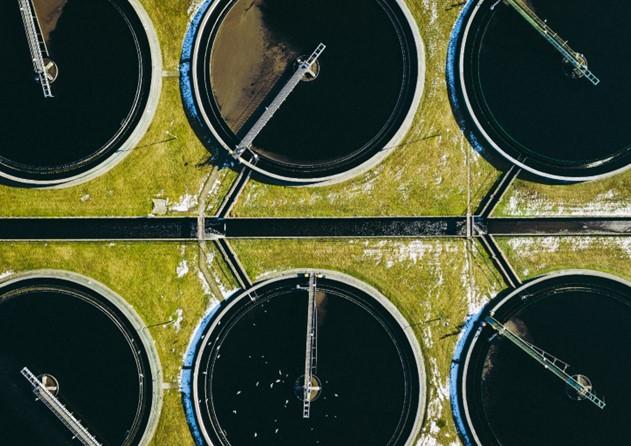This Briefing provides a comprehensive roadmap to navigating the new regulations introduced by Law 5037/2023 in so far as they affect the water supply and waste management sectors.
A. Introduction
B. Management and Operation
C. Competence and Monitoring
D. Imposition of Sanctions
E. Dispute Resolution
F. Other Provisions
A. Introduction
1. Law 5037/2023 (the New Law), (Government’s Gazette Issue A 78/28.03.2023) introduces a new regulatory framework for the administration of water services and waste management.
2. Water supply and waste management services have been brought within the remit of the Regulatory Authority for Energy (RAE) which has been renamed the Regulatory Authority for Waste, Energy and Water (RAAEY).
3. RAAEY will oversee all water providers, including all public and municipal organisations and companies in which the public sector is a shareholder, the most well-known of which are the Athens and Thessaloniki Water Supply and Sewerage Companies.
4. RAAEY is tasked with recommending improvements to the quality of services in these areas.
B. Management and Operation
1. RAAEY’s board will consist of a president, three vice-presidents and 9 board members, all of which act independently and impartially. Three separate sub-committees will be formed to oversee the regulation of waste management, energy and water, each comprised of a vice-president and three board members.
2. RAAEY’s board will serve for a 5-year term which is renewable once and will issue decisions by way of majority vote, with the president holding the deciding vote in the case of a tie.
3. A special counsel to RAAEY’s president is appointed to advise on issues concerning the waste management, energy and water supply sectors.
4. An executive committee made up of the president and vice-presidents can be created to deal with administrative matters or to assign complex issues to the waste, energy and water sub-committees mentioned above.
5. Special temporary or permanent bodies and working groups can also be established to deal swiftly with urgent matters.
C. Competence and Monitoring
1. RAAEY has the power to supervise activity and review both the financial and material objectives of waste, energy and water regulation. Water supply and waste management operators are required to submit annual reports on their planning to RAAEY, which in turn must submit an annual report to the Ministry of the Environment and Energy.
2. RAAEY must submit a comprehensive set of proposed measures aimed at ensuring that all water supply agencies function properly by 31 December 2024. This must include a proposal on the maximum number of agents and their optimal geographic coverage, taking into account the particular characteristics of various regions.
3. RAAEY has been given various powers, including to:
a. suggest mergers or unifications of water supply and waste management agencies to improve their operation and effectiveness;
b. establish criteria by which to ascertain the administrative capabilities of water or waste management agencies to ensure minimum standards of service;
c. receive petitions and reports from consumers and supervise the adoption and implementation of protective measures for their benefit;
d. collect data from water supply and waste management agencies to better regulate its fields of responsibility;
e. propose to the Ministry of the Environment and Energy the adoption of measures, rules and regulations to improve the regulatory framework governing water, waste management and energy; and
f. participate in deliberations before parliament on laws within its remit.
D. Imposition of Sanctions
1. In addition to the sanctions already at the disposition of RAE, RAAEY can impose fines for violations of pricing and cost-declaration rules for water services and the violation of rules for urban waste management.
2. For water regulation violations, RAAEY must issue a notice of attention before imposing a fine.
3. For waste management regulation violations, RAAEY must hear the party involved prior to imposing a fine.
4. The New Law states that fines can be imposed on solid waste management agencies (ΦΟ.Σ.Δ.Α.), municipal waste management entities and all water supply providers.
5. RAAEY can impose fines of up to €10m, as long as the total amount of the fine does not exceed 6% of the agency’s annual revenue from water supply or waste management for the previous financial year.
E. Dispute Resolution
1. A permanent court of arbitration is set up to hear disputes arising from the performance of RAAEY’s responsibilities. It will hear disputes arising from the implementation of national and EU law, as well as disputes between:
a. energy providers, water supply and waste management agencies;
b. clients and corporations that engage in activities regulated by RAAEY; and
c. solid waste management agencies and municipalities.
2. RAAEY succeeds the State as a party to pending disputes arising in relation to subjects within its remit.
F. Other Provisions
1. The New Law provides that the Ministry of the Environment and Energy is now the government agency responsible for policies relating to administration and supervision of the water supply.
2. Supervision over the Athens Water Supply and Sewerage Company is to fall directly within the responsibility of the Ministry.
3. The Advisory Committee for Water falls within the mandate of the General Directory for Water and its composition will change.
4. The member composition of the Decentralised Administrations’ Water Councils will also change.
5. The Ministry of the Environment and Energy will investigate the feasibility of extending RAAEY’s responsibilities to include the supervision of alternative waste management systems and of integrating the Hellenic Recycling Organisation within RAAEY.
6. The New Law provides for a new National Strategy for Water which sets out the framework for water management, water quality standards and protection of water resources for the next years, in line with the European Union's Economic and Climate Policy.
Click here to download the Briefing.





